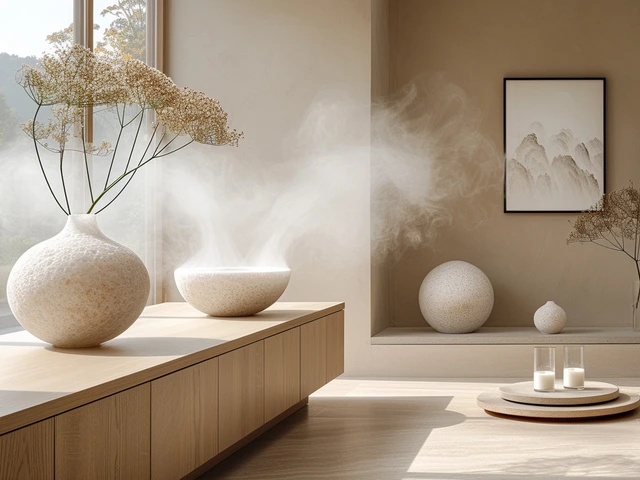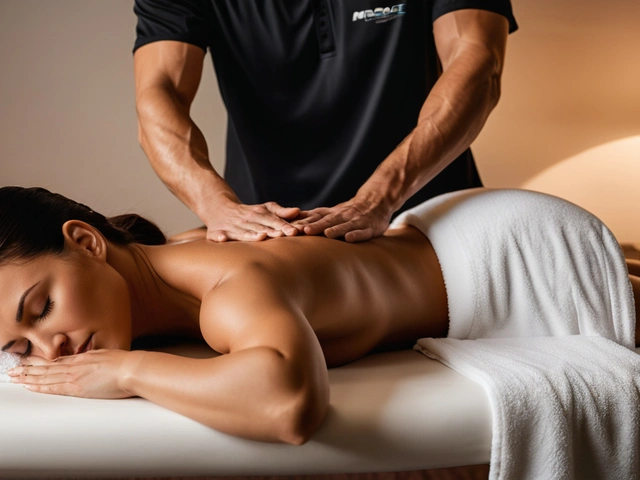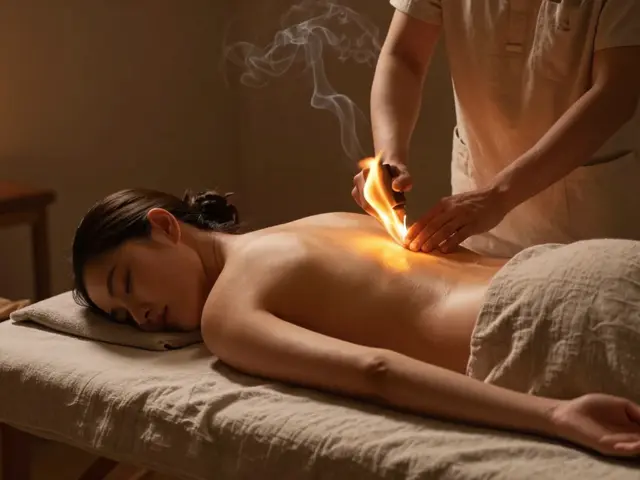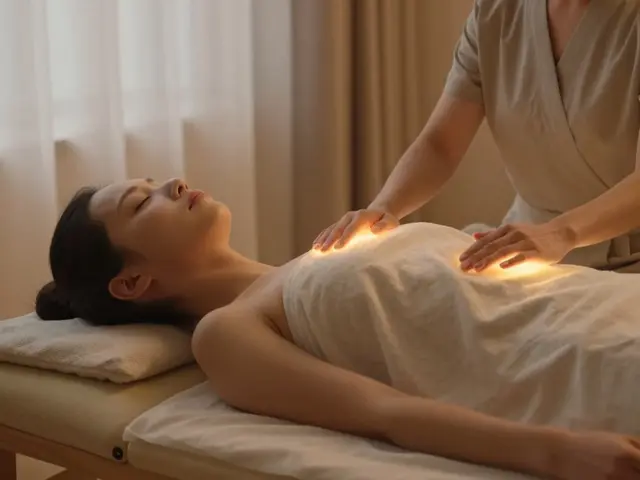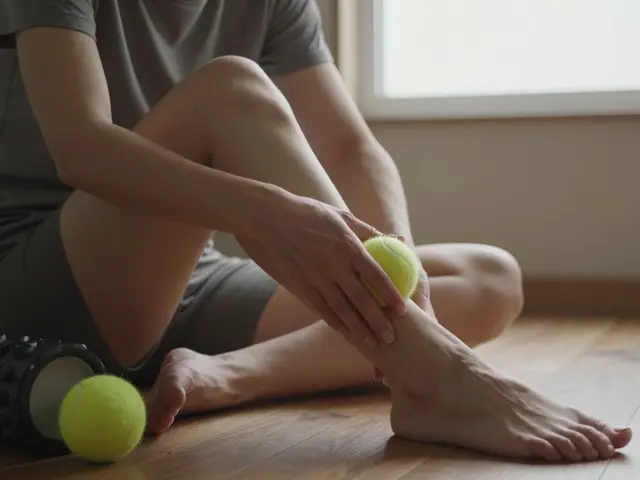Life throws countless challenges our way that often lead to stress and anxiety. It’s easy to feel overwhelmed, and that’s where a natural solution like deep tissue massage can make all the difference. This therapeutic practice not only works wonders for the body but also eases the mind.
By focusing on the deeper layers of muscles and connective tissue, deep tissue massage offers much-needed relief and relaxation. Unlike a gentle Swedish massage, this technique applies firm pressure and slow strokes to release chronic muscle tension. It can be incredibly effective in addressing stress and anxiety, providing a sense of calm and revitalization.
If you’re seeking a way to naturally manage your stress levels and enhance your overall well-being, deep tissue massage might just be the answer you’ve been looking for. It connects the physical body and mental state in ways that promote lasting peace and balance.
- Understanding Deep Tissue Massage
- The Science of Stress and Anxiety
- Benefits of Deep Tissue Massage
- Practicing Regular Deep Tissue Massage
- Choosing a Qualified Therapist
Understanding Deep Tissue Massage
Deep tissue massage is a compelling and effective form of therapy that delves into the depths of our muscular system to provide relief from chronic aches and improve overall tissue function. While many might equate massage with relaxation, this technique goes beyond the superficial layers, focusing on realigning deeper layers of muscles and connective tissues. This makes it an ideal choice for addressing areas of tension, commonly found in the neck, shoulders, and lower back. By using slow strokes and deep finger pressure, deep tissue massage works on the core issues that often cause stress and anxiety.
The origins of deep tissue massage can be traced back to ancient therapeutic practices, where healers recognized the benefits of applying pressure to specific muscle groups. Unlike other types of massage that focus on relaxation, this technique is often used to address specific muscular issues and improve body mechanics. Through persistent and targeted pressure, therapists can reach the deepest layers of muscle tissue, fascia, and trigger points. This is essential because it promotes blood circulation, reduces inflammation, and alleviates the stress hormones that build up during daily activities.
In an era where stress is a common part of life, understanding how your body retains tension is crucial. Deep tissue massage helps release these pent-up tensions, allowing for a rejuvenated and refreshed state of being. It's a type of massage therapy that is particularly valuable for people suffering from muscle strain, sports injuries, and chronic pain. The processes involved often include variations of a few key techniques, such as friction, kneading, and the use of elbows or thumbs to apply direct pressure to problem areas.
Dr. Tiffany Field from the Touch Research Institute once stated, "Massage therapy changes the measure of stress hormones in the body, resulting in improved mood and reduced anxiety." This highlights how therapeutic touch not only aids the physical body but also offers psychological benefits.
For those who experience frequent stress and anxiety, incorporating deep tissue massage into a wellness routine can lead to noticeable improvements. Sessions are tailored to personal needs, targeting areas of built-up tension. Despite what some might think, many find this form of massage deeply relaxing, despite the additional pressure applied. It’s a profound experience, one that reminds us of the intricate connection between body and mind. If you're considering trying it, make sure to communicate clearly with your therapist about the level of pressure that feels comfortable to ensure the best experience.
While not everyone may be familiar with how the process works, it's beneficial to understand that deep tissue massage involves a comprehensive approach to health. It addresses the alignment of the muscles and connective tissues, which can also have an impact on posture. Improved posture not only reduces pain but also reduces the onset of stress and anxiety, making daily life more manageable. Remember, practicing deep tissue massage isn’t just about feeling good for the moment. It can have sustained impacts on both physical and mental health.
The Science of Stress and Anxiety
Stress and anxiety are not just modern buzzwords; they have a biological basis that affects our health and wellness in profound ways. When we experience stress, the body triggers a response commonly known as the fight-or-flight mode. This is an ancient survival mechanism that prepares us to either confront or flee from danger. While this response is invaluable for acute, threatening situations, chronic activation due to daily pressures can lead to significant health issues. This is where the need for effective relief strategies, like deep tissue massage, comes into play.
The hypothalamus, a small region at the base of the brain, is responsible for initiating the stress response. It sends a signal to the adrenal glands, prompting the release of stress hormones such as cortisol and adrenaline. These hormones prepare the body to react, increasing heart rate, blood pressure, and energy supplies. However, if this state persists, it can contribute to anxiety disorders, depression, and even cardiovascular problems. This is why understanding the underlying mechanisms of stress is essential for maintaining mental equilibrium and physical health.
Interestingly, studies show that anxiety might not always be detrimental in small doses. Dr. John Smith, a renowned psychologist, once noted,
"A little bit of stress can act as a motivator; it sharpens the mind and enhances performance. However, when anxiety becomes chronic or overwhelming, it drains our resilience and adaptability."Hence, distinguishing between healthy stress that enhances productivity and the kind that inhibits daily functioning is vital. Recent data reveal that in Australia alone, about 14% of the population experiences an anxiety disorder annually. These figures highlight the importance of accessible and effective therapies.
A deeper dive into stress and anxiety shows their impact is not just psychological but also physical. Continuous muscle tension, a common symptom of stress, can lead to body pains and discomfort. Deep tissue massage addresses these physical manifestations directly. It targets the deep muscle layers, applying pressure that releases muscle knots and alleviates tension, offering a dual benefit of physical relief and mental relaxation. This holistic approach makes deep tissue massage a valuable tool in managing stress, enhancing the body's natural coping mechanisms.
Research suggests that regular sessions of deep tissue massage can significantly reduce physiological markers of stress. Studies conducted by the Massage Therapy Foundation indicate a decrease in cortisol levels and an increase in serotonin and dopamine—hormones associated with happiness and relaxation—after massage therapy. Incorporating deep tissue massage into one's routine not only addresses the symptoms of stress and anxiety but also helps retrain the body to enter a relaxation state more readily.
Beyond the biological aspect, the personal experience of stress varies significantly among individuals. Factors like lifestyle, personal resilience, and social support all play roles in how stress is perceived and managed. Understanding these personalized elements can further tailor how interventions, including deep tissue massage, are utilized. In doing so, the therapy becomes not only a physical touch but a personal healing ritual, addressing the unique needs of each individual.

Benefits of Deep Tissue Massage
Diving into the world of deep tissue massage unveils a treasure trove of benefits that cater not just to physical wellness, but mental tranquility as well. Known primarily for its ability to target tense muscles and knots, this form of massage also provides an avenue for profound stress relief. By applying firm pressure and utilizing slow strokes, it reaches deeper layers of muscles and fascia, which are often the hunting grounds for built-up tension and stress. Many people find that after a session, their level of anxiety drops significantly, allowing them to embrace a more peaceful state of mind.
Stress relief isn't the only gift it offers; deep tissue massage also plays a critical role in relieving chronic pain. Conditions like lower back pain, arthritis, and fibromyalgia can significantly improve with regular treatment. A gentle yet focused approach helps break the cycle of pain, enabling better movement and flexibility. Notably, it promotes quicker healing by increasing blood flow and reducing inflammation — your body’s natural response to injury or stress. It's like hitting the reset button, encouraging your muscles to heal naturally, and your mind to unwind.
Remarkably, deep tissue massage can also enhance mental clarity and concentration. By reducing stress hormone levels such as cortisol, and promoting the production of 'feel-good' neurotransmitters like serotonin and dopamine, it cultivates a sense of well-being. This, in turn, boosts your mood and elevates your energy levels. It's no wonder that those who experience regular deep tissue massages report not only improvements in physical discomfort but also a more positive outlook on life.
For those who are keen on improving their posture and physical alignment, deep tissue massage is incredibly beneficial. By working through layers of tension and aligning deeper muscles, it helps correct imbalances often caused by prolonged sitting or poor posture habits. As muscles are realigned, individuals typically notice an enhancement in their overall body awareness, which naturally leads to a more upright and confident posture. This noticeable change can have a ripple effect, bringing newfound confidence and poise.
"Deep tissue massage is a remarkable ally in holistic health, offering both regenerative physical benefits and crucial mental relief," says Dr. Jane Crawford of the Holistic Therapy Institute.
Additionally, deep tissue massage has been shown to improve sleep quality. By releasing the tension that often contributes to insomnia or disrupted sleep patterns, clients find themselves slipping into restful slumber more easily. The body and mind are entwined in a calm state, free from the clenching grip of anxiety, paving the way for deeper, more restorative sleep. This naturally enhances overall health, as quality sleep is a cornerstone of well-being.
Practicing Regular Deep Tissue Massage
Integrating deep tissue massage into your regular wellness routine can be a game-changer for stress relief and anxiety management. This practice doesn't just heal the body but also calms the mind, allowing you to tackle daily life's challenges with more ease and balance. It's essential to acknowledge that consistency is key here. Engaging in regular massage sessions helps in maintaining a relaxed state of mind long after you've left the massage table.
A deep tissue massage goes beyond mere physical pampering. It involves manipulating the deeper layers of muscle and fascia to release tension built over time. Regular sessions help in maintaining muscle health, increase flexibility, and release toxins from muscles. Notably, stress-related hormones like cortisol can wreak havoc on your system, and regular massages have been shown to reduce these levels significantly. According to a study by the Touch Research Institute, participants who received regular massages experienced reduced anxiety levels and enhanced mood compared to those who didn't.
Getting into the routine of regular massages starts with finding a suitable time that comfortably fits your schedule. Consider a monthly session as a starting point; you can always adjust frequency based on your body's reactions and stress levels. Ensure to stay hydrated post-session to help flush out toxins released during the massage. Keep in mind the importance of communication with your therapist. Discuss the areas you feel stressed and allow them to customize the treatment for optimal benefits.
It’s worth noting the variety of techniques that can be integrated during each session depending on your current needs. A skilled therapist may vary pressure or introduce different methods like trigger point therapy to address specific aches or pains. The benefits you gain from each regular session can accumulate, compounding into better mental health, reduced anxiety, and enhanced stress relief over time.
Aside from the biophysical benefits, practicing regular deep tissue massage is an opportunity for self-care—a rare moment where you can completely disconnect and focus on personal health and well-being. The meditative aspect of massage encourages mindfulness during the session, helping you to form a deeper connection with your body’s needs. In our fast-paced world, gifting yourself regular time out for a therapeutic massage can significantly improve your quality of life and resilience against stressors.
Embracing these massages as a part of your lifestyle change firm roots in preventing burnout and improving productivity. It’s akin to pressing a reset button, allowing you to return energized and centered, ready for whatever life throws at you. As Helen Maria, a renowned massage therapist once noted,
“The human body carries deep-seated memories, and massage is a way to release the storm inside of us."These storms of stress and anxiety can dissipate with intention and regular attention, proving once again, the wholesome power of touch is unmatched.

Choosing a Qualified Therapist
Finding a qualified therapist for your deep tissue massage is crucial to achieving the best possible results for stress and anxiety relief. The relationship between a client and therapist should be built on trust, respect, and understanding. To begin, it is important to ensure that the therapist is licensed or certified in massage therapy, ideally with a focus on deep tissue techniques. You may want to consider asking friends or family for recommendations, as this can often lead to finding a reputable professional with a proven track record. Keep in mind that experience matters; the more experienced the therapist, the better they are likely to be at understanding and adapting to individual needs.
When meeting a potential therapist, discuss your specific goals and expectations before the session. A qualified therapist will be happy to explain their approach and how it can address your specific concerns. Inquire about their training and prior experience with clients dealing with stress and anxiety, as this can indicate their ability to tailor techniques to suit your needs. During this initial discussion, pay attention to how well they listen to your concerns. Effective communication is essential, so choose someone who pays attention and makes you feel heard.
Additionally, consider the environment of the massage therapy space. A calming and clean environment often reflects the professionalism of the therapist. Also, inquire whether the therapist’s schedule is flexible enough to accommodate regular sessions if needed, which is beneficial for ongoing stress management. Costs can vary, so discuss pricing early on to ensure it fits within your budget.
The therapeutic relationship is key, and you should feel comfortable with your therapist. A study published in the International Journal of Therapeutic Massage & Bodywork highlighted the significance of client-therapist compatibility, noting that a positive relationship enhances therapy outcomes. If you feel uneasy or if your therapist does not respect your boundaries during sessions, it may be time to look for another person.
"The right massage therapist can make all the difference, transforming a simple massage into a profound healing experience," mentioned by Dr. Evelyn Beck, renowned for her work in massage therapy research.
Before embarking on your deep tissue massage journey, take time to research and select a therapist who’s skilled, communicative, and respectful of your needs. With the right professional, you will likely find that deep tissue massage can be a wonderfully supportive therapy to combat stress and anxiety, leading you towards a more relaxed and balanced life.


